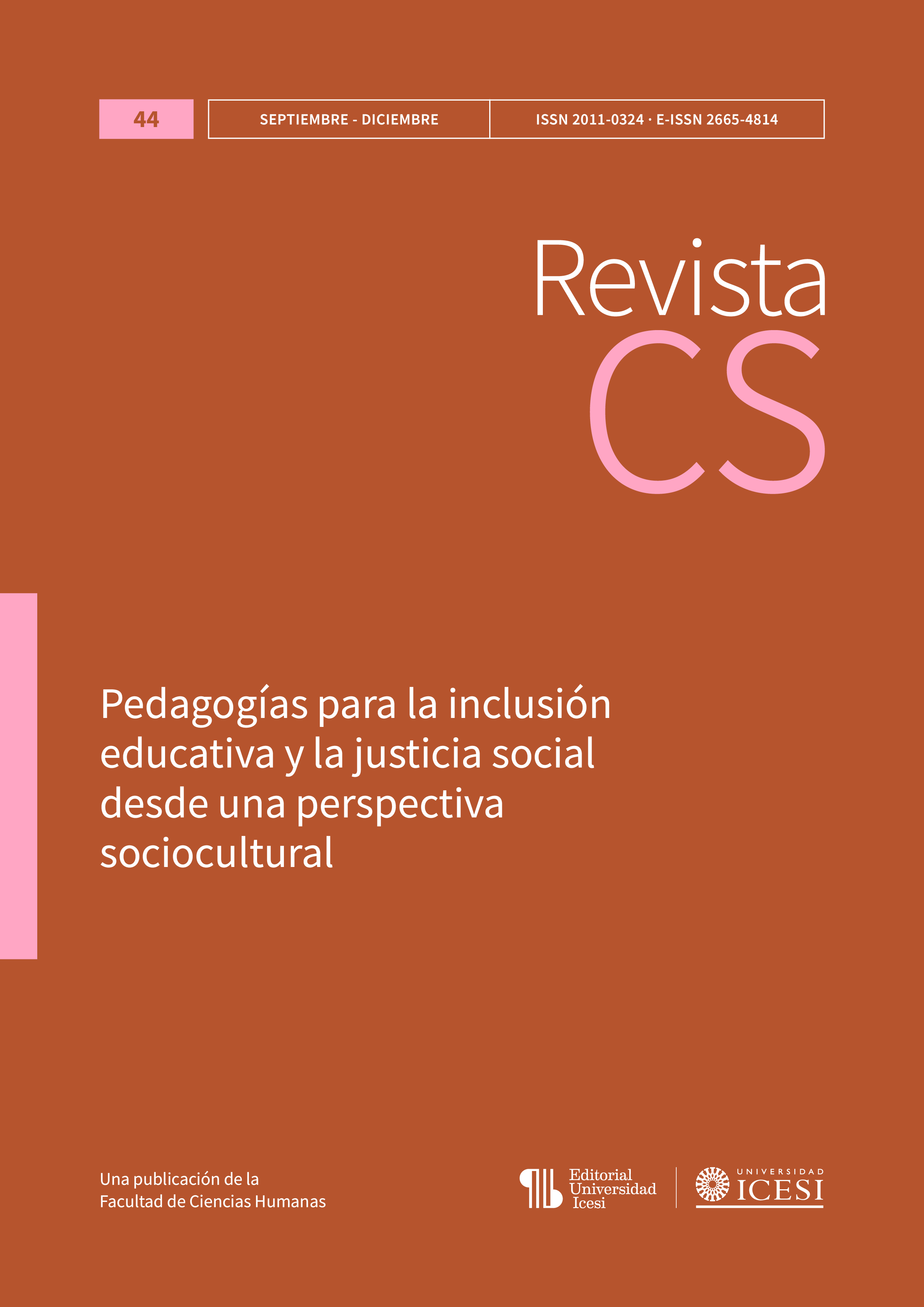Pedagogies for educational inclusion and social justice from a sociocultural perspective
DOI:
https://doi.org/10.18046/recs.i44.14Downloads
References
Coll, César; Esteban-Guitart, Moises; Iglesias, Edgar (2020). Aprendizaje con sentido y valor personal. Experiencias, recursos y estrategias de personalización educativa. Editorial Graó.
Echeita, Gerardo; Ainscow, Mel (2011). La educación inclusiva como derecho. Marco de referencia y pautas de acción para el desarrollo de una revolución pendiente. Tejuelo, 12, 26-46.
Esteban-Guitart, Moises; Gee, James (2024). Learning as life project(s). Learning: Research and Practice, 10(1), 93-102.
Gajardo-Espinoza, Katherine; Cáceres-Iglesias, Judith; Zardel, Jacobo (2023).
El concepto de inclusión desde las aproximaciones críticas emergentes. Revista Nacional e Internacional de Educación Inclusiva, 16(2), 34-50.
Hedegaard, Mariane; Edwards, Anne (2019). Supporting Difficult Transitions. Children, Young People and Their Carers. Bloomsbury.
Iglesias-Vidal, Edgar; González-Patiño, Javier; Lalueza, José Luis; Esteban-Guitart, Moises (2020). Manifiesto en tiempos de pandemia: Por una educación crítica, intergeneracional, sostenible y comunitaria. Revista Internacional De Educación Para La Justicia Social, 9(3), 181–198.
Kozulin, Alex (2000). Instrumentos psicológicos: La educación desde una perspectiva sociocultural. Editorial Paidós.
Marsico, Guiseppina (2018). Development and education as crossing socio-cultural boundaries. En The Cambridge handbook of sociocultural psychology (pp. 302-316), editado por Alberto Rosa y Jaan Valsiner. Cambridge University Press.
Paris, Django (2012). Culturally sustaining pedagogy: A needed change in stance, terminology, and practice. Educational Researcher, 41(3), 93-97.
Vygotski, Lev (1997). Fundamentos de Defectología. Editorial Visor.
Downloads
Published
Issue
Section
License

This work is licensed under a Creative Commons Attribution-NonCommercial 4.0 International License.
© Reserved Copyright
Material in this publication may be reproduced without authorization, provided the title, author and institutional source is acknowledged.
The content published in Revista CS is distributed under the Creative Commons BY-NC 4.0 Attribution/Recognition-NonCommercial 4.0 International license.
You are free to:
Share — copy and redistribute the material in any medium or format.
Adapt — remix, transform, and build upon the material.
Under the following terms:
Attribution — You must give appropriate credit , provide a link to the license, and indicate if changes were made . You may do so in any reasonable manner, but not in any way that suggests the licensor endorses you or your use.
NonCommercial — You may not use the material for commercial purposes.












